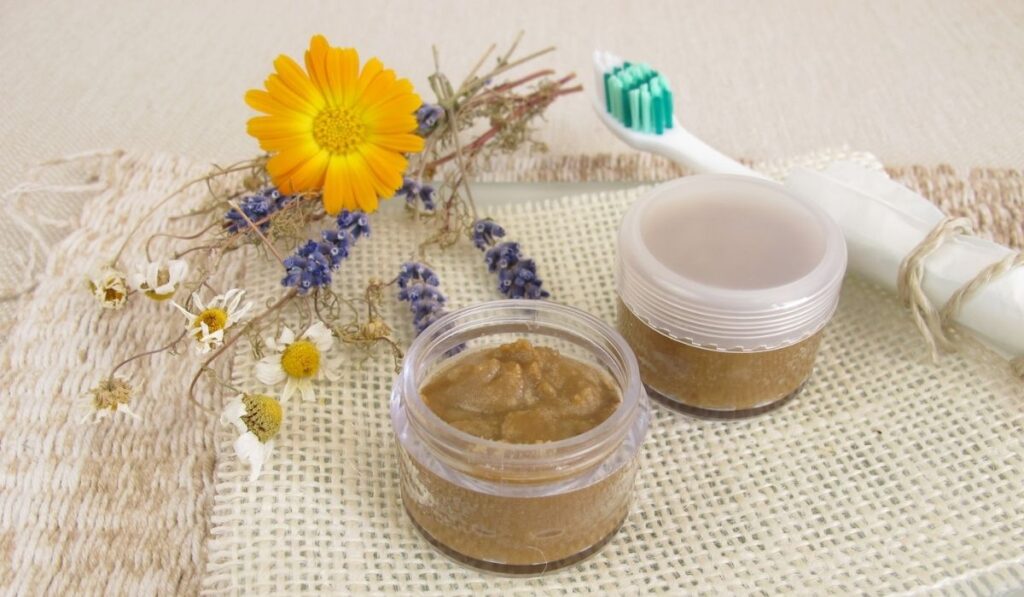When you’re pregnant, there are many activities and treatments that medical experts advise you to avoid, for the safety of the mother and her unborn child. One of those treatments is teeth whitening. For the most part, most dentists don’t carry out the procedure on pregnant women. But is it safe to whiten teeth during pregnancy?
While there are no evidence that teeth whitening while pregnant is dangerous, the hydrogen peroxide used during the process may pose a risk that is better to avoid. Pregnant women are already vulnerable to oral health issues, so it’s best to limit strain on the teeth until after the delivery.
What are these oral health issues that pregnant women face, and how can teeth whitening increase the risks? Let’s take a closer look at the whitening process and some alternatives to consider.
Is It Safe to Get Your Teeth Whitened While Pregnant?

According to the American Pregnancy Association, cosmetic treatments like teeth whitening should be postponed until after delivery. The American Dental Association (ADA) offers a similar recommendation, since it’s best to air on the side of caution when chemicals like those in whitening products are involved.
Pregnancy usually comes with its own set of medical challenges, including changes to the oral health of pregnant women. Some of those challenges include:
- Loosening of teeth
- A higher risk of gum disease and tooth decay
- Frequent morning sickness that can lead to demineralization and teeth erosion
Having a teeth whitening procedure while already coping with any of these issues can exacerbate the problem and lead to other problems. It’s therefore better to wait till pregnancy is over before undergoing any cosmetic dental procedures.
Three Potential Risks When Getting Teeth Whitened While Pregnant
Now that we’ve looked at the common oral health issues that pregnant women face, let’s examine some of the risks associated with teeth whitening while pregnant.
Tissue Damage
Due to the gum inflammation caused by gingivitis, using high hydrogen peroxide (the chemical usually used in whitening procedures) can lead to tissue loss, pain, and discomfort.
Tooth Sensitivity
High concentrations of hydrogen peroxide can seep through the enamel and cause teeth sensitivity. In cases where there has already been enamel erosion, it’s even easier for the high levels of hydrogen peroxide to erode the enamel and cause teeth sensitivity.
Unknown Effects on the Baby
No one knows for sure what hydrogen peroxide does to a fetus. It could be harmless or dangerous. Since its effects are still unknown, it’s best to protect the baby from any unforeseen dangers by delaying the procedure until after the birth.
Natural Teeth-Whitening Alternatives

There are various natural and homemade teeth whiteners, though the ADA considers most to be ineffective. Nonetheless, many people have tried them and promote their use. Most importantly, regardless of whether they truly work, these natural teeth whiteners are safe to use!
Using coconut oil (on Amazon) in an oil pulling process, by swishing it around your mouth, may help whiten your teeth. When you swish the pleasant-tasting coconut oil in your mouth, it removes bacteria that causes plaque and discolors your teeth.
Another method you can consider is eating pineapples. Pineapples contain the enzyme bromelain, which does many great things for your body. One of those great things is whitening your teeth. Pineapples are safe to eat whether you’re pregnant or not. If you aren’t a fan of pineapples, you can consider eating raw vegetables.
Raw vegetables are ideal for keeping your mouth in good shape; they can prevent plaque buildup and help keep your teeth white.
Finally, baking soda (on Amazon) might be the answer you need. When you mix baking soda with water, you get a paste that scrubs the teeth and whitens the outer part. Like the other homemade tips we’ve described, baking soda is safe for pregnant women.
Five Common Oral Health Issues During Pregnancy
Let’s examine some of pregnant women’s most prevalent oral health issues.
Cavities
Most pregnant women have cravings for sugary foods and stray from their regular eating habits. These cravings may heighten the risk of cavities if proper care isn’t taken.
Enamel Erosion
Acid reflux and morning sickness are common during pregnancy — and the constant acidic state of the mouth caused by reflux and throwing up often wears down tooth enamel.
If you experience reflux or vomiting, rinse your mouth out immediately afterward to prevent enamel erosion.
Gingivitis
According to the Center for Disease Control (CDC), gingivitis affects 60-75% of women during pregnancy. Gingivitis is a condition where the gums become inflamed, and it can be aggravated by the change in hormonal levels during pregnancy.
Gingivitis has to be treated in a timely manner to prevent the loss of bone that supports the teeth. To ease the discomfort caused by gingivitis, pregnant women can use warm salt rinses.
Periodontitis
Periodontitis is a serious gum infection that damages the soft tissue that supports the teeth. Periodontitis affects about a third of all pregnant women due to increased bacteria in their mouths.
Having periodontitis can be quite severe. If left untreated, teeth can become loose. It is also possible for the mother to transfer the harmful bacteria that causes the disease to her baby.
Furthermore, periodontitis increases the risks of preterm and low-weight babies. Experts don’t know why and how periodontitis does this, so it is essential to get professional treatment for the condition.
Pregnancy Tumors in the Mouth
Everyone feels a bolt of fear when they hear the word tumor, but these red swellings in the mouth aren’t much more than an inconvenience. They are common among pregnant women, and they usually disappear after the pregnancy.
Conclusion
When you weigh the pros and cons of having your teeth whitened during pregnancy, the negatives certainly outweigh the positives. Although the process may be harmless, why engage in something that could have a negative impact?
Oral hygiene during pregnancy is vital. Pregnant women are already prone to dental issues like gingivitis and periodontitis. Tipping that precarious balance by undergoing a tooth whitening procedure can only lead to more problems.
If you’re determined to whiten your teeth nonetheless, try some homemade whitening products that are definitely safe for you and your baby.


